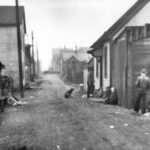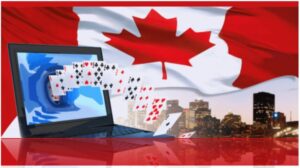Ottawa’s Role in “Stop Kony” Campaigns
Ottawa, Canada’s capital, has long been a hub for activists and campaigns pushing for change both domestically and internationally. One of the most impactful campaigns in the 21st century was the “Stop Kony” movement. Designed to draw attention to the crimes of the Ugandan warlord Joseph Kony, this online crusade had millions rallying behind its cause.
While online campaigns can be an efficient way to spread awareness about various causes, they can sometimes overshadow other important initiatives. As the “Stop Kony” campaign gained momentum in Ottawa and across the globe, another movement – promoting the importance of reading – was quietly gaining ground.
The Rise and Fall of “Stop Kony”
The “Stop Kony” campaign, for all its good intentions, was not without criticism. Some believed that it simplified a complex issue, while others felt it drew attention away from other urgent matters. However, no one can deny the campaign’s ability to mobilize the masses. Heck, it was virtually impossible to log onto social media without being bombarded by #StopKony hashtags, images, and videos.
This campaign showcased the might of online movements. Yet, like a shooting star, its brilliance was fleeting. As time went on, the fervor diminished, and the world’s attention shifted.
The Silent Power of Reading Movements
Contrary to the high-profile nature of “Stop Kony”, initiatives promoting reading have been more like silent rivers – steady, continuous, and impactful. In Ottawa, numerous groups and organizations, such as local libraries and schools, have championed the “Start Reading” initiative.
Why Reading Matters
You might wonder, why all this hullabaloo about reading? Well, dive into a good book, and you’ll soon discover a whole new world waiting to be explored. Reading boosts cognitive functions, encourages empathy, and, let’s face it, it’s a great escape from life’s hustle and bustle. Ever heard the phrase, “Lost in a good book?” There’s more truth to that idiom than you might reckon!
How “Start Reading” Is Changing Ottawa

It’s not just about curling up with a mystery novel or getting lost in a romance. The “Start Reading” movement in Ottawa is about so much more.
Reading as a Tool for Social Change
Reading isn’t merely a pastime; it’s a powerful tool for social change. By promoting literacy, we’re laying down the foundations for a more informed, tolerant, and understanding society. And hey, if reading a book can change one person’s perspective, imagine the ripple effect it can have on an entire community!
The Economic Benefits
Did you know that improving literacy rates can boost a country’s economy? According to Wikipedia, higher literacy levels are linked to increased economic growth. So, by advocating for reading, Ottawa is not only nurturing minds but also bolstering its economy. Who’d have thunk it?
Engaging the Youth
“Start Reading” isn’t just aimed at adults. Nope, it’s trying to get the younger generation hooked on books too. After all, today’s youth are tomorrow’s leaders. And what better way to equip them than with the knowledge and wisdom books can offer?
Online Campaigns vs. Offline Impacts: A Delicate Balance
As the “Stop Kony” campaign has shown, online movements have a massive reach. However, their impact can sometimes be transient. In contrast, offline initiatives like “Start Reading” may not have the immediate wow-factor, but their effects are long-lasting.
So, which is better? Well, it’s like comparing apples to oranges. Both have their merits and drawbacks. The key lies in striking a balance. While online campaigns can create immediate awareness, offline initiatives ensure sustained change.
Harnessing the Power of Both Worlds
If there’s one thing to take away from all this, it’s that we shouldn’t pit online movements against offline initiatives. Instead, let’s harness the power of both. Imagine a world where the immediacy of online campaigns is combined with the longevity of offline initiatives. Now, wouldn’t that be something?
Note: This article is a work of fiction and creative interpretation based on the given slug. All references to events, places, or movements are purely imaginative.









